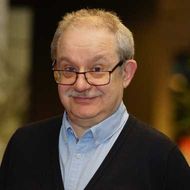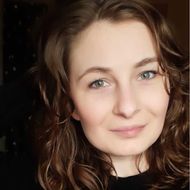- A
- A
- A
- ABC
- ABC
- ABC
- А
- А
- А
- А
- А
- HSE University
- Faculties
- Faculty of Social Sciences
- School of Sociology
- News
- Sociology Forum in Vienna: Potential of Global Sociology for Solving the Problems of Contemporary Society
Address: 101000, Moscow,
11 Myasnitskaya Ulitsa.
Phone: 8 (495) 772-95-90 *12349
Email: izangieva@hse.ru
The School of Sociology aims to train future social analysts in sociological reasoning to address the needs of social life, business, politics, public administration, and the media. To this end, the school works to develop a close link between education and research, as well as application-oriented education, internationalization of research and education, and close networks with major employers on the labour market.
In press
Abashkin V., Abdrakhmanova G., Vishnevskiy K. et al.
M.: HSE, 2025.
In press
Mikhaylova O., Dokuka S.
Quality and Quantity. 2025.
In bk.: International Encyclopedia of Business Management. Elsevier, 2024.
OSF, 2024
Address: 101000, Moscow,
11 Myasnitskaya Ulitsa.
Phone: 8 (495) 772-95-90 *12349
Email: izangieva@hse.ru

Sociology Forum in Vienna: Potential of Global Sociology for Solving the Problems of Contemporary Society
From July 10 – 14, 2016, the Third International Sociological Association (ISA) Forum of Sociology on ‘The Futures We Want: Global Sociology and the Struggles for a Better World’ took place in Vienna. About 5,000 scholars from 126 countries took part in the event.
This international academic forum included 55 research committees, 4 thematic groups, and 4 working groups. It featured over 50 parallel sections in three buildings of the University of Vienna. Groups of researchers from Germany, USA, Great Britain, Japan, Austria, and Italy were the most numerous, although about 100 Russian scholars took part in the forum (Russia was 14th by the total number of participants).
Sociologists from various countries tried to outline the new challenges facing contemporary societies and sociology, and explained the necessity of using some innovative methods and theories.
The forum focused on the future of contemporary societies, a future full of uncertainty and global risks. What can sociology contribute to these broader debates about the future? What visions for alternative futures are imaginable? What are some viable roadmaps for social transformation? These were the main questions on the forum agenda.
Part of the process of thinking about the future is concern about the decreasing popularity of sociology, a concern shared by many sociologists. It seems likely that the strength of sociology is in a variety of research projects, as well as in sociologists’ readiness to be part of a broader interdisciplinary cooperation.
Four members of the HSE Department of General Sociology, lecturers of the Master’s Programme in Sociology of Public Sphere and Social Communications, Maria Kozlova, Olga Logunova, Olga Simonova, and Ekaterina Lytkina, as well as their supervisor, Nikita Pokrovsky, took part in the event.
Nikita Pokrovsky (HSE) and Vladimir Ilin (St. Petersburg University) spoke at one of the common sessions on ‘The Antinomies of the Current Crisis and the Futures of Complex Societies’. Their paper is a detailed analysis of the crisis of cities and the emerging de-urbanization trend in contemporary societies, especially among the professionals in the IT and creative industries, and those who work remotely. As a result of the session, both Russian sociologists were invited to publish their paper in an ISA monograph.
Olga Simonova presented her paper ‘Social Work Specialists in Russia: Standardization of Feelings and Moral Mission of Social Assistance’. The author analyzed the emotional work in social assistance, which, according to her, leads to a deeper and fuller understanding of the specifics and ethics of this profession.
Olga Logunova took part in the ‘Sociology of Communication’ session, which outlined the three main research topics: environment, migration, and big data.
‘My paper was dedicated to digital literacy in Russian regions’, said Olga Logunova, ‘This is a joint study with ROCIT and WCIOM. As part of the study, we’ve made the first measurement, which demonstrated a low level of digital literacy in Russia overall, only about 4.79, and also showed big disproportions both between regions and in specific parameters.
Ekaterina Lytkina organized the session ‘Anomie and Alienation Theories Revisited’ as part of the RC36 host committee ‘Alienation Theory and Research’. Researchers from USA, Germany, Poland, and Latvia presented their theoretical and empirical studies at the session. Ekaterina Lytkina also spoke on ‘Aesthetic Upgrading of Urban Environments: The Case of Urban Sculptures in the Post-Soviet Societies’. The paper was about the new monuments that have appeared in the post-Soviet space since 2000. The author counted over 200 monuments just in Russia, and their number is constantly growing.
- About
- About
- Key Figures & Facts
- Sustainability at HSE University
- Faculties & Departments
- International Partnerships
- Faculty & Staff
- HSE Buildings
- Public Enquiries
- Studies
- Admissions
- Programme Catalogue
- Undergraduate
- Graduate
- Exchange Programmes
- Summer Schools
- Semester in Moscow
- Business Internship
-
https://elearning.hse.ru/en/mooc/
Massive Open Online Courses
-
https://www.hse.ru/en/visual/
HSE Site for the Visually Impaired
-
http://5top100.com/
Russian Academic Excellence Project 5-100
- © HSE University 1993–2025 Contacts Copyright Privacy Policy Site Map
- Edit



